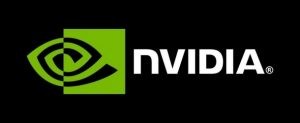Quantum News Briefs December 4: Jij & ORCA Computing Announce Strategic Partnership in Quantum Computing Technology • Three Projects Powered by QuEra Computing Contributions Move to Phase Two of Wellcome Leap’s Quantum for Bio Challenge, Focused on Healthcare and Biology Applications • University of Missouri Becomes First in State to Launch IBM Quantum Innovation Center • NVIDIA & AWS Collaborate to Enhance Quantum & AI Research Tools

Jij & ORCA Computing Announce Strategic Partnership in Quantum Computing Technology
 Jij Inc.and ORCA Computing Limited have announced the establishment of a strategic partnership in quantum computing technology, marking a pioneering collaboration between Japan and the UK.
Jij Inc.and ORCA Computing Limited have announced the establishment of a strategic partnership in quantum computing technology, marking a pioneering collaboration between Japan and the UK.
Under this partnership, Jij will develop algorithms to maximize the capabilities of ORCA Computing’s photonic quantum computers, with applications in logistics delivery planning, power supply and demand planning in the energy sector, and manufacturing production schedule optimization where the capabilities of traditional computing methods are challenged.
This partnership combines the system and architecture expertise of ORCA Computing, a leading UK quantum startup with a track record of deliveries to government agencies in the UK and other countries, with Jij`s extensive knowledge gained through developing unique algorithms across various industries including energy, manufacturing, transportation, communications, materials development, and construction. This marks the first such comprehensive collaboration between Japanese and British startups in the quantum field.
International cooperation for the practical implementation of quantum computing technology is gaining momentum. Between Japan and the UK, the “Hiroshima Accord on an Enhanced Japan-UK Global Strategic Partnership” (The Hiroshima Accord), signed in Hiroshima during the G7 Summit in May 2023, specifically mentions their commitment to “work together to maintain strategic advantages in emerging technologies including quantum technology”(*1).
Three Projects Powered by QuEra Computing Contributions Move to Phase Two of Wellcome Leap’s Quantum for Bio Challenge, Focused on Healthcare and Biology Applications
 QuEra Computing, the leader in neutral-atom quantum computing, today announced that all three research projects in which QuEra is involved have advanced to the second of three phases of Wellcome Leap’s Quantum for Bio Challenge. The projects taking three of the coveted eight spots in the prestigious program further demonstrate QuEra’s importance in developing quantum computing applications in complex scientific fields, including healthcare and biology.
QuEra Computing, the leader in neutral-atom quantum computing, today announced that all three research projects in which QuEra is involved have advanced to the second of three phases of Wellcome Leap’s Quantum for Bio Challenge. The projects taking three of the coveted eight spots in the prestigious program further demonstrate QuEra’s importance in developing quantum computing applications in complex scientific fields, including healthcare and biology.
Wellcome Leap’s Supported Challenge Program in Quantum for Bio is focused on identifying, developing, and demonstrating biology and healthcare applications that will benefit from the quantum computers expected to emerge in the next three to five years. Up to $40 million in research funding is being awarded to multidisciplinary, multiorganizational teams, and up to $10 million in challenge prizes are available at the end of the program for successful proof-of-concept demonstrations on quantum devices with a clear path to scaling to large quantum computers.The focus of Phase One was quantum algorithm development, and the technical progress and deliverables were evaluated and tracked by the Wellcome Leap Quantum for Bio Program Director and an expert internal technical team. The eight teams from the original 12 that advanced to Phase Two demonstrated a significant advance for human health within the defined target resources.
The focus of Phase Two is large-scale simulations of the developed algorithms in Phase 1 using classical high-performance computing. To complete Phase Two, teams will perform a classical HPC simulation of their quantum algorithm for 30 to 40 qubits and compare the results to the ones obtained by the standard classical approach for the respective application. All teams must identify and secure quantum hardware expertise participation to be considered for progression to Phase Three.
University of Missouri Becomes First in State to Launch IBM Quantum Innovation Center
The University of Missouri has joined the IBM Quantum Network and established the state’s first IBM Quantum Innovation Center to provide researchers and institutions with access to advanced quantum computing through IBM’s cloud-based platform according to December 3 announcement.
Launching this innovation center positions Mizzou as one of more than 250 international members of the IBM Quantum Network, spanning universities, organizations, research laboratories and startups. The initiative is spearheaded by leaders and faculty from Mizzou’s College of Arts and Science and College of Engineering who will use the technology to advance groundbreaking research. It’s also a joint effort with the MU Division of Information Technology, which will play an integral role of helping prepare Mizzou’s users to take advantage of IBM’s quantum systems over the cloud.
A cohort of faculty has been selected to start using the technology immediately. Engineering researchers will use quantum computing power to study topics such as quantum programming, and semiconductors. Researchers from the College of Arts and Science will leverage the IBM partnership to study condensed matter and advance work in computational biophysics.
MU will build a robust quantum ecosystem through research initiatives, student education, and workforce development.
NVIDIA & AWS Collaborate to Enhance Quantum & AI Research Tools

NVIDIA and Amazon Web Services are converging at AWS re:Invent in Las Vegas this week to showcase new solutions designed to accelerate AI and robotics and simplify research in quantum computing development. IQT New summarizes the extensive announcement.
NVIDIA CUDA-Q is now integrated with Amazon Braket to streamline quantum computing development. CUDA-Q users can use Amazon Braket’s quantum processors, while Braket users can tap CUDA-Q’s GPU-accelerated workflows for development and simulation. 
The CUDA-Q platform allows developers to build hybrid quantum-classical applications and run them on many different types of quantum processors, simulated and physical. Now preinstalled on Amazon Braket, CUDA-Q provides a seamless development platform for hybrid quantum-classical applications, unlocking new potential in quantum research.
The NVIDIA DGX Cloud AI computing platform is now available through AWS Marketplace Private Offers, offering a high-performance, fully managed solution for enterprises to train and customize AI models.
DGX Cloud offers flexible terms, a fully managed and optimized platform, and direct access to NVIDIA experts to help businesses scale their AI capabilities quickly. Early adopter Leonardo.ai, part of the Canva family, is already using DGX Cloud on AWS to develop advanced design tools.



















